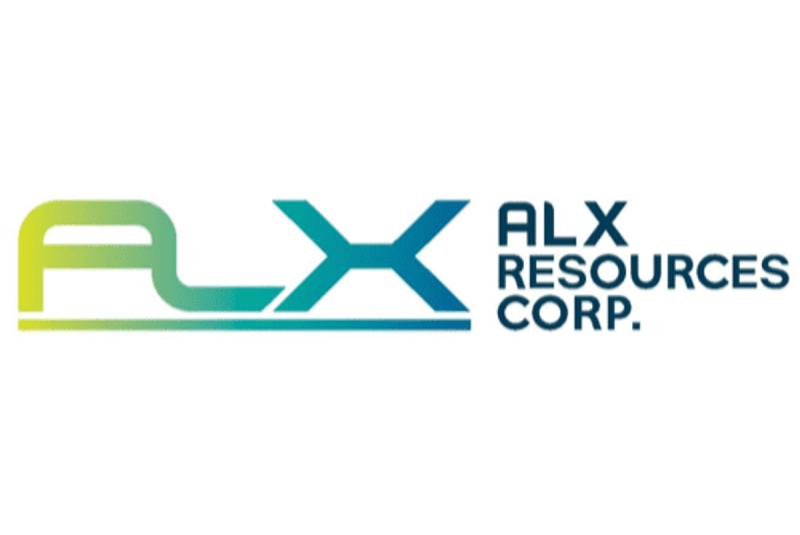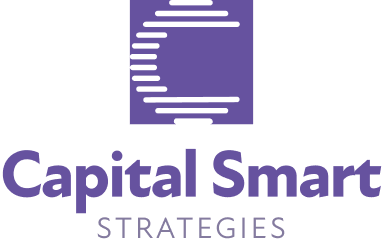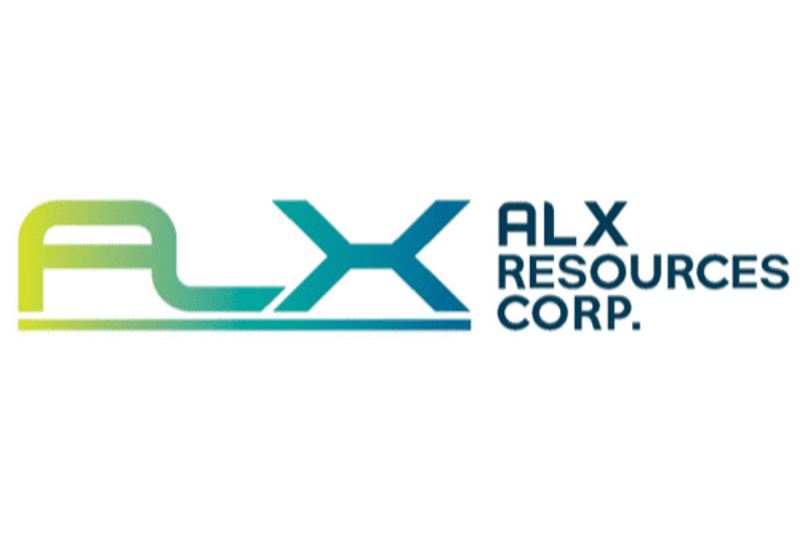
Overview
ALX Resources (TSXV:AL,FWB:6LLN,OTC:ALXEF) is dedicated to providing shareholders with multiple opportunities for discovery by exploring a portfolio of prospective mineral properties, which include uranium, lithium, nickel–copper–cobalt and gold.
Using the latest technologies, ALX plans and executes well-designed exploration programs and holds over 240,000 hectares of prospective properties in Saskatchewan, Quebec and Ontario, Canada.
Having operations in stable Canadian jurisdictions strategically positions ALX Resources in key exploration areas with strong potential for economic base metals deposits, producing gold mines and the richest uranium deposits in the world. This includes the Firebird nickel (formerly Falcon Nickel) and Flying Vee nickel-copper-cobalt projects, and the Sceptre gold project, all located in Northern Saskatchewan.
ALX is planning a 2024 summer exploration program at its Hydra Lithium Project in the James Bay region of Quebec, a joint venture with Forrestania Resources Ltd., which includes a prospecting and geological mapping program to locate pegmatite bodies in the field as a follow-up to ALX’s 2023 exploration activities.
ALX also holds interests in several uranium exploration properties in Northern Saskatchewan, including the Gibbons Creek uranium project comprising eight claims covering 13,864 hectares. The company has completed its 2024 winter drilling program that consisted of five holes totaling 905.4 meters. Four of the five holes have uranium mineralization at or near the unconformity, based upon hand-held scintillometer readings on the drill core, downhole gamma probe results, and visual observation of uranium minerals. Analytical results are pending.
“Walking Mag” survey technique at the Gibbons Creek Uranium Project in 2023
ALX has a 20 percent interest in the Hook-Carter Uranium Project in which Denison Mines (NYSE:DNN) owns 80 percent. Denison has funded approximately $7 million in exploration to date. The property is subject to certain royalties held by underlying vendors. The 2023 Hook-Carter airborne Z-Axis Tipper electromagnetic survey successfully outlined historical conductors present at Hook-Carter and resolved new conductors in deeper terrain that were not identified by previous geophysical surveys.
The company also completed a surface prospecting program in October 2023 at its 100 percent-owned McKenzie Lake uranium project located in the southeastern Athabasca Basin area of northern Saskatchewan.
Along with ALX’s rich portfolio of diverse assets in world-renowned jurisdictions, identifying undervalued and underexplored assets is the company’s strong suit. As early adopters of new methods of exploration, the company embodies innovation with its willingness to utilize new geochemical and geophysical technologies. This includes artificial intelligence recognition methods and other emerging science-focused exploration tools.
ALX has a world-class management team led by chairman and CEO Warren Stanyer who has more than 27 years of experience in the mineral exploration industry, focused mostly on uranium exploration in Saskatchewan.
Company Highlights
Uses the latest technologies to execute well-designed exploration programs in their primary projects located in the stable jurisdictions of Saskatchewan, Quebec and Ontario.Acts as a prospect generator to explore and develop mineral properties for option.In October 2019, high grade nickel was located on surface from the company’s first site visit to the Firebird nickel project in Saskatchewan with the additional presence of copper anomalies.Owns and gold exploration properties within the Red Lake Mining District, a region that has produced over 28 million ounces of gold since mines began production in 1925.Acquired by staking in 2021 the 100 percent-owned Sabre, McKenzie Lake and Javelin uranium projects in northern Saskatchewan, Canada with no underlying royalties.Acquired the Hydra Lithium Project in a world-class lithium exploration district in the James Bay region of northern Quebec, Canada. The project consists of 306 mineral claims in eight sub-projects totalling 29,262 hectares (72,306 acres).ALX Resources acquired by staking the 31,808-hectare (78,598 acres) Anchor Lithium Project within the Meguma Terrane of central and western Nova Scotia, Canada.
Key Projects
Hydra Lithium Project
ALX Resources owns a 50 percent interest in the Hydra Lithium Project in the James Bay region of Quebec, Canada. The remaining 50 percent interest is owned by Forrestania Resources (ASX:FRS). The project comprises eight sub-projects totaling 29,262 hectares. Hydra’s sub-projects include Volta (4,751 hectares), Echo (5,566 hectares), Nike (2,462 hectares), Sprite (3,437 hectares), Cobra (4,249 hectares), Viper (1,280 hectares), Python East (3,218 hectares) and Python West (4,298 hectares), Hydra is located in a world-class lithium exploration district that hosts several significant lithium-cesium-tantalum (LCT) type pegmatites.
2024 Summer Exploration Program
Planning for 2024 summer exploration at the Hydra lithium project is underway which includes a prospecting and geological mapping program, designed to locate pegmatite bodies in the field as a follow-up to ALX’s 2023 exploration activities at Hydra which highlights the following:
Python West: 30 samples collected with sample #F435054 taken from a pegmatite boulder returned 278 parts per million (ppm) lithium, 575 ppm cesium and 865 ppm rubidium. Positive geochemical ratios were calculated and are interpreted as pathfinders for LCT pegmatites: K/Rb (17.1), K/Cs (26) and Nb/Ta (2.1);Python East: 15 samples collected and sample #F435156 taken from a pegmatite boulder returned 387 ppm lithium, 24.5 ppm cesium and 326 ppm rubidium;Sprite: 27 samples collected. Two samples collected from granitic and paragneiss outcrops samples returned lithium and rubidium values over 100 ppm;Volta: 21 samples collected. Biotite crystals were described in one outcrop sample that also showed orange luminescence under ultraviolet light that may suggest a fertile environment for LCT pegmatites. Follow-up in 2024 is planned.Echo: 1 sample collected. Prospecting in 2023 was impeded by fires, weather conditions and schedule constraints. Follow-up on first-priority targets detected by remote sensing is planned for 2024.Cobra: 10 samples collected. Follow-up on second-priority targets is planned for 2024.Nike: 2 samples were collected. Follow-up on second-priority targets is planned for 2024.Viper: No samples were collected. An airborne reconnaissance survey was carried out. Follow-up on second-priority targets is planned for 2024.
2023 Pegmatite sample from Python West
Gibbons Creek Uranium Project
ALX Resources completed a diamond drilling program in the winter of 2022 in the Northern Athabasca Basin, near Stony Rapids, Saskatchewan. The program comprised three holes, completed for a total of approximately 1,240 meters, atop two previously untested anomalies.
Drill hole GC22-01, along the southwestern portion of the Zinger Conductor, intersected high in the sandstone column, mineral alteration including pyrite, siderite, and bleaching, and low angle to core axis fracture zones that suggest a steep-dipping structure may project to the sub-Athabasca unconformity at an approximate downhole depth of 345 meters.
Drill hole GC22-02 tested the northeast section of the Zinger trend. It revealed discrete elevated gamma probe peaks that occur between 293.7 and 300.9 meters. Geochemical analysis of the samples collected over these horizons will help to determine the significance of these peaks.
ALX has completed its 2024 winter drilling program at Gibbons Creek which aimed to test for continuity of uranium mineralization first discovered in 1979 by Eldorado Nuclear and ALX in 2015. Five holes totaling 905.4 meters were completed with four of the five holes intersecting uranium mineralization at or near the unconformity. Mineralization found in the 2024 drilling was intersected in two areas located 500 meters apart within a target area that ALX defined in late 2023 through a high-resolution magnetic survey and a soil gas hydrocarbon survey.
Close-up of uranium mineralization in core sample from hole GC24-04 – peak radioactivity (8,662 cps) at 107.87 meters.
Hook Carter Project
The Hook-Carter project consists of eleven claims covering 25,115 hectares in the southwest corner of the Athabasca Basin. The project has excellent potential to host economic uranium deposits. Hook-Carter is interpreted to host the northeastern strike extension of the Patterson Lake Corridor, which hosts Nexgen Energy’s Arrow uranium deposit, Fission Uranium’s Triple R uranium deposit and Purepoint Uranium’s Spitfire, Hornet and Dragon zones, which are in a joint venture with Cameco Corporation and Orano Canada. Hook-Carter also overlies the interpreted strike extension of the Carter and Derksen corridors, each highly prospective, under-explored corridor in which significant uranium mineralization may exist.
The 2023 ZTEM survey successfully outlined historical conductors at Hook-Carter and resolved new conductors in deeper terrain that were not identified by previous geophysical surveys.
Management Team
Warren Stanyer – Chairman and CEO
Warren Stanyer has over 27 years of experience in the mineral exploration industry, focused mostly on uranium in the Athabasca Basin. Stanyer began his career with Pioneer Metals, a diverse explorer for gold, base metals, and uranium, with properties in New Mexico, British Columbia, Manitoba, and Saskatchewan. After gaining over a decade of experience, Stanyer accepted the role of president and CEO of Northern Continental Resources, a junior exploration company focused on uranium in the Athabasca Basin. He steered the successful sale of the company in 2009 to Hathor Exploration, in competition with Denison Mines.
Stanyer became chairman of Guyana Frontier Mining in December 2010; and, during his tenure, served as president and CEO. As a director of Alpha Minerals, a predecessor company of ALX, and following the Patterson Lake uranium discovery in 2012, Stanyer served as chairman of the special committee in 2013 during the acquisition of the company by Fission Uranium, subsequently serving as a director of Fission until 2014. Stanyer serves as president, CEO, and director of Nevada Sunrise Gold, a junior exploration company focused on gold, copper, cobalt, and lithium in Nevada. He is also a director of New Moon Minerals, a private mineral exploration company.
Patrick Groening – CFO and Director
Patrick Groening’s previous roles with public companies include more than nine combined years serving as CFO for both Strathmore Minerals and Fission Energy. He filled the same role for Jalna Minerals, Sernova, and Papuan Precious Metals, and performed dual roles of CFO and corporate secretary For Wolf Capital and Pacific Asia China Energy.
David Miller – Director
David Miller is a businessman, professional economic geologist, and has served as an elected member of the Wyoming Legislature. Miller was CEO of Strathmore Minerals prior to its merger with Energy Fuels in 2013.
Jean-Jacques Gautrot – Director
Jean-Jacques Gautrot of Paris, France, is a former chairman of the World Nuclear Association and serves as an ambassador of the WNA to promote the nuclear industry worldwide. He has had a productive career in the nuclear energy business.
Howard Haugom – Director
Howard Haugom is co-owner of Quilts Etc., a national linen retail chain and a partner at Burkehill Capital Corp., a Vancouver-based private equity firm. He has taught at Simon Fraser University in B.C., worked for both the private and public sectors as an economist, and has been a consultant to the gold resource sector.
Charles Roy – Chairman, Technical Committee
Charles Roy brings a rare depth of experience and success in uranium exploration from a professional career largely with the world’s leading uranium mining company, Cameco Corporation. Roy was involved in the discovery of seven uranium deposits.
Jody Dahrouge, – Technical Advisor
Jody Dahrouge is a professional geologist with 25 years of experience in Canada and internationally, and has a successful background in uranium and lithium exploration and project generation within the Athabasca Basin of Saskatchewan, Quebec, and the USA.
R. Sierd Eriks – Technical Advisor
R. Sierd Eriks has worked in mineral exploration for over thirty-five years with a focus on uranium exploration for over the past two decades. Eriks acted as president and chief geologist for ALX until he retired from full-time work in 2022.
Dave Quirt – Technical Advisor
Dave Quirt is a consulting geoscientist residing in Saskatchewan with 45 years of geological, mineral exploration, and research and development experience, both in the consulting sector and within the mineral exploration industry.
Ken Wasyliuk – Technical Advisor
Mr. Wasyliuk has worked in mineral exploration for over 30 years with a focus on geochemistry and clay mineralogy in uranium exploration. During his career, Mr. Wasyliuk became an expert on geochemical and clay alteration patterns associated with uranium deposits in the Athabasca Basin.
Dr. Larry Hulbert – Technical Advisor
Dr. Hulbert is a Registered Professional Geoscientist in Saskatchewan and Ontario. From 1984 to 2007, Larry worked as a Research Scientist for the Geological Survey of Canada where he analyzed most of the significant nickel-copper-PGE deposits in Canada, including those at ALX’s Firebird Nickel Project.

